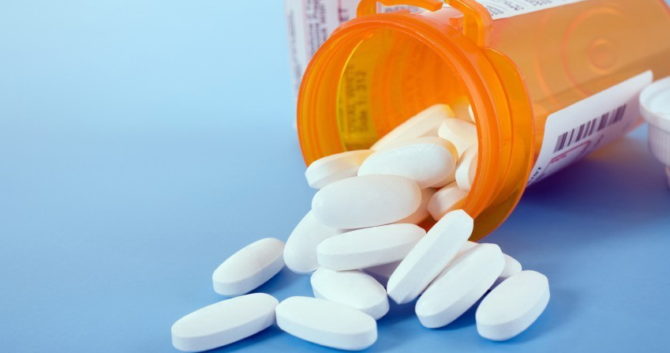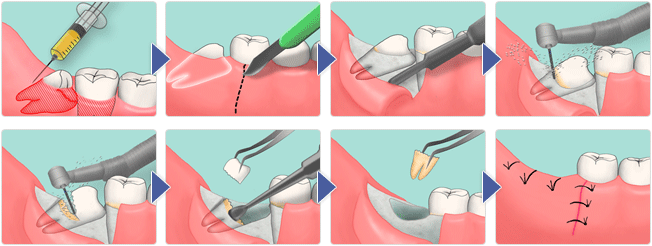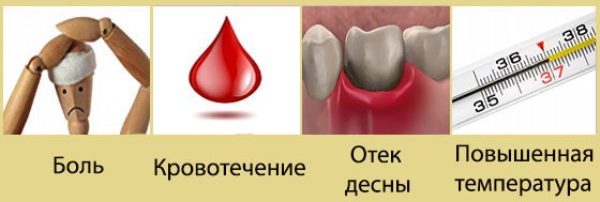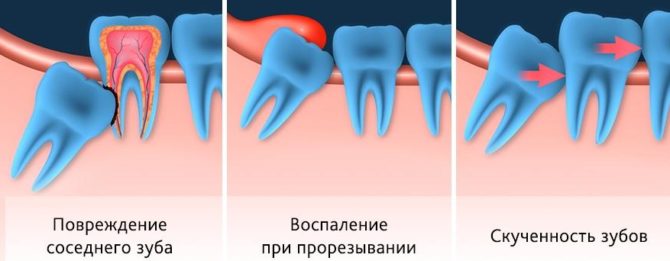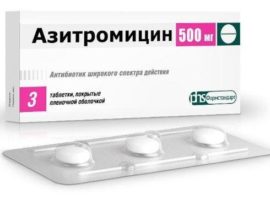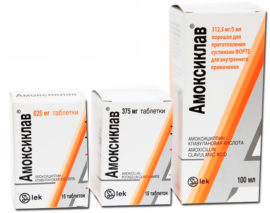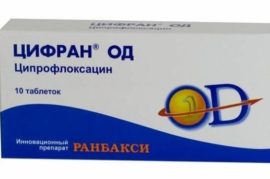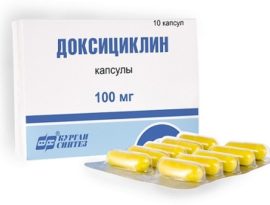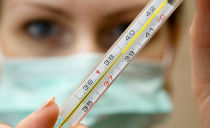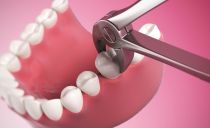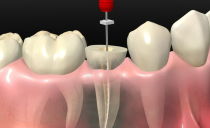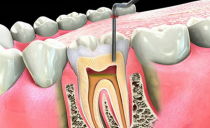Do I need to take antibiotics after tooth extraction, which antibiotic is better
In the question of what antibiotics to take after the removal of incisors, fangs, molars and wisdom teeth, one must rely only on the opinion of a specialist. Antibiotics are prescribed after extraction extremely rarely. In addition, some drugs may be harmful or even dangerous to the health of a particular patient, therefore, the choice of a drug should be carried out individually, taking into account the characteristics of the clinical picture of the patient.
Content
Do I need to drink antibiotics after tooth extraction
Antibiotics are drugs that inhibit the growth of certain types of living cells. Their main action is aimed at slowing down or completely stopping the growth of bacteria. Similar drugs are actively used in dentistry. They are used to treat already existing inflammatory processes or to prevent them.
Prescribing antibiotics is always wary. Do not think that such medications must be used after each extraction (removal) of the tooth. With improper and excessive use, this group of drugs can even be harmful to human health.
For the most part, treatment in dentistry is either completely without the use of antibacterial agents, or the drug is used once, but in a fairly large dosage. In the latter case, the medicine is injected into the body through an injection at the end of the operation.
In what cases are antibiotics indicated?
Dentists take antibiotics very seriously. Usually they do this only in two cases: with complex surgery and in the presence of inflammatory processes at the end of treatment.
Difficult tooth extraction
The operation to remove the tooth is simple and complex. Complex extraction is indicated in the following cases:
- The presence of a retarded (curved, growing in the wrong direction) wisdom tooth.
- Curvature or destruction of the roots.
- Fusion of the roots of molars with bone tissue.
- The presence of a cyst, fistula, or other purulent inflammation in the oral cavity.
Taking antibiotics is mandatory when removing a tooth with flux or cyst. In this case, an infection is already developing in the body, and extraction is, in fact, only one of the stages of its treatment.
For any complex dental operation, doctors have to work not only with the teeth themselves, but also with the soft tissues around them. Often, at the end of the procedure, it is required to stitch the mucous membrane or even the cheeks, therefore, in order to avoid inflammation of the soft tissues, an antibacterial course is prescribed to patients.
Another difference between simple and complex tooth extraction is the use of additional dental instruments. Dental surgeons often have to divide a tooth into parts or crush it. After such a tooth extraction, antibiotics must be drunk. Even a professional with great experience can make a mistake, because of which bacteria get into the operated area. In this case, the usual antiseptic drugs will not help prevent the development of the inflammatory process.
Oral inflammation
Even with a simple tooth extraction operation, there’s a chance of developing an infection. True, in this case, the medication is prescribed even if there are symptoms indicating possible complications:
- severe bleeding;
- lack of a blood clot in the hole;
- fever;
- weakness and general malaise;
- long not prolonged hole;
- severe swelling and redness of the gums.
With gum inflammation after tooth extraction, an antibiotic is not always prescribed. First, the dentist makes sure that the symptoms indicate precisely the complication. Indeed, redness and swelling of the gums are standard symptoms that appear in every patient who has a tooth removed. Only in rare cases, such a sign indicates developing inflammation.
A postoperative inflammatory process can develop if the patient does not follow the doctor's recommendations. Bacteria penetrate the gums through the injured areas of the soft tissues, which begin to develop rapidly. Most often, infection leads to the formation of purulent inflammation, but there are more dangerous consequences.
The danger of postoperative complications lies in the fact that they are not always able to be detected on time. Symptoms of infectious inflammation may not be too pronounced, which is why patients confuse them with general malaise. For this reason, even after simple extraction, doctors prescribe patients a second appointment in the dental clinic after 1-1.5 weeks. If the gum is very inflamed, an examination is prescribed for the near future.
Do I need to drink antibiotics after removing a wisdom tooth
Often antibacterial agents must be drunk after removing the wisdom tooth, even if it is not associated with flux or other complication. The third molar rarely erupts correctly. Usually, by the time of its growth in the jaw there is no free space, due to which the tooth has nowhere to grow, and it begins to put pressure on neighboring tissues. But even if the figure eight cut through correctly, her roots can be very bent. So, almost always the removal of the third molar is a complicated operation, and antibiotics are needed after it.
If the growth of the molar does not interfere, and they decided to remove it for other reasons, the risk of developing postoperative complications is still high. Since the wisdom tooth is located in an inaccessible place, the process of its removal is somewhat complicated. During the operation, soft tissues around the molar may be accidentally damaged, usually in such cases a short course of taking antibiotics is enough.
What antibiotics are prescribed after tooth extraction: names
Among the huge assortment of antibacterial agents, only a few are especially popular in dentistry. The table below describes the best medicines that are usually prescribed after tooth extraction.
| Title | Group | Features |
|---|---|---|
|
Azithromycin |
Azalides | Azithromycin is prescribed after tooth extraction most often. It is able to protect a person from a huge number of harmful bacteria. Azithromycin is prescribed in the presence of flux, cysts and is used not only in adults, but also in pediatric dentistry. |
|
Amoxiclav (Amoxicillin) |
Penicillins | Amoxiclav, aka Amoxicillin, is used after tooth extraction only slightly less than the previous tool. It is prescribed if the patient has chronic diseases or other factors that can lead to complications. Outside of dentistry, Amoxiclav is actively used to treat respiratory diseases. |
|
Digital |
Ciprofloxacins | A combined remedy that is effective against several groups of bacteria at once. Typically, a drug called Tsifran is prescribed after tooth extraction with a flux, cyst for the purpose of prevention.But thanks to a wide spectrum of action, it can also be used to eliminate complications that have already appeared, for example, to treat inflamed gums. Sometimes Cyfran is used to replace Amoxicillin in the presence of an allergy to its components. |
|
Doxycycline |
Tetracyclines | The antibiotic is effective, but is contraindicated in children. After prolonged use, problems with the color of enamel may occur: it turns yellow and becomes stained. Most often, the drug is prescribed after a complex operation or if there are factors that can lead to the development of an infection. Doxycycline is rarely used to treat complications. |
Which antibiotic will be prescribed to the patient depends only on the specialist. He evaluates the clinical situation, compares all factors and selects the most suitable remedy, prescribes the optimal dosage.
How to drink antibiotics after extraction
Regardless of which antibiotics are prescribed to the patient after tooth extraction, the rules for their admission are almost always the same:
- Tablets or suspension should be drunk 1-2 times a day, preferably an hour before or two hours after a meal.
- Antibiotics can only be washed with purified warm water, the use of juices, tea, soda or other drinks is unacceptable.
- The medicine cannot be combined with a large list of other drugs. Therefore, if the patient takes something else, he must notify the dentist before the operation.
- Do not drink alcohol during antibiotic therapy. But even if the patient does not drink pills, after the extraction it is still worth refusing harmful drinks - they will interfere with the healing process of soft tissues.
The dosage, as well as the frequency of administration of the drug, depends on a large number of factors:
- the complexity of the operation;
- individual characteristics of the patient's body;
- the presence of chronic diseases;
- condition of the oral cavity.
If the patient develops gum inflammation after tooth extraction, the antibiotic can be prescribed in tandem with other drugs: it is necessary to treat damaged tissues with antiseptic agents and take preparations for toothache.
Antibiotics kill not only pathogenic microflora. They have the same effect on beneficial or conditionally pathogenic bacteria that are involved in digestion. Therefore, at the same time they need to take bifidobacteria. Particularly important is the intake of bifidobacteria for girls, since antibiotics can affect the female microflora.
Contraindications to taking antibiotics
The decision about which antibiotic is best prescribed to the patient after tooth extraction is made taking into account contraindications and side effects of drugs. Doctors try to minimize the negative effect of the tablets, therefore, they are extremely careful in prescribing drugs of a similar spectrum of action in the presence of a patient's history:
- individual intolerance to individual components;
- pregnancy
- liver and kidney diseases.
In the first and last case, safe types of antibacterial agents are selected, but pregnancy is an absolute contraindication to both taking antibiotics and complex extraction. Tooth extraction is carried out only in emergency situations when there is a danger to the health of the mother or child.
Side effects of antibiotics
Many rules for taking medications after tooth extraction are aimed at reducing their side effects. The most common consequences include the following:
- Gastrointestinal upset. It often manifests itself in the form of constipation, bloating and heaviness in the abdomen. It occurs due to a violation of the natural microflora. The situation can be corrected by proper nutrition and taking bifidobacteria. If you choose the right dosage of medication, problems can be completely avoided.
- Allergy. Most often manifests itself in the form of a rash.To get rid of the allergy that manifested due to the taken antibiotic, it is enough to change the prescribed drug to another.
- Candidiasis (thrush). It develops only in those cases when a person is already a carrier of the pathogen fungus. The main symptoms are itching and discharge. Women often suffer from this side effect. There are tools that completely relieve the ailment in just one go.
Usually, each patient has to face at least one of these problems, regardless of which medicine he is taking. But such side effects of antibacterial agents can be easily prevented and it is better to take care of this in advance.

